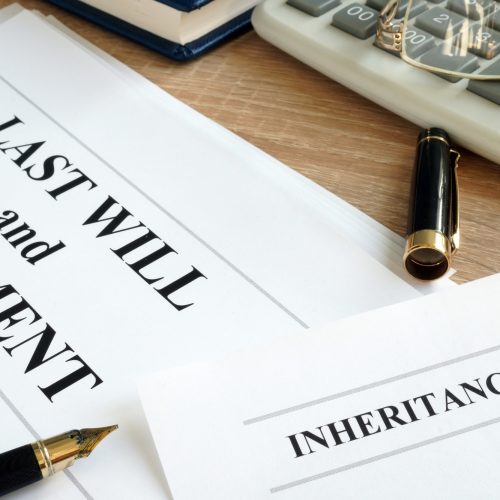Protecting Your Greenville Rental Properties Through Your Estate Plan
For many real estate investors in Greenville, South Carolina, building a portfolio of rental properties is the result of years of hard work, careful financial planning, and savvy market navigation. Each property represents a significant investment and a source of income. Yet, the very success of this enterprise brings with it a complex set of risks that go far beyond fluctuating market values or difficult tenants. The most pressing challenge is often one that is overlooked until it is too late: how to protect these assets from liability and ensure they pass seamlessly to the next generation without being dismantled by legal complications.
What Are the Primary Risks to Your Rental Property Portfolio?
Before exploring solutions, it is important to identify the specific threats your real estate investments face. For landlords in South Carolina, these risks are both external and internal, arising during your lifetime and after your passing.
- Personal and Business Liability: A tenant or a visitor could slip and fall on one of your properties, leading to a significant lawsuit. Without a proper legal structure, a judgment from a lawsuit related to one property could potentially put your other rental properties, your personal residence, savings, and other assets at risk.
- The Probate Process: If you own rental properties in your own name, they are considered part of your personal estate. Upon your death, these properties will have to go through the probate court process in Greenville County. Probate is a public, often time-consuming, and expensive legal procedure where a court oversees the settling of your debts and the distribution of your assets. This process can delay your heirs’ access to the properties and their income for months or even years.
- Creditor Claims: Your properties can be vulnerable to claims from your personal creditors. Similarly, if a lawsuit or debt arises from one property, it could impact others if they are not properly insulated from each other.
- Heir and Family Disputes: When rental properties are left to multiple heirs without clear instructions, conflict often follows. Beneficiaries may disagree on key decisions: Should the properties be sold or kept? Who should manage them? How should rental income be distributed? These disagreements can lead to costly legal battles that diminish the value of the inheritance.
- Personal Incapacity: If you were to become unable to manage your own affairs due to illness or injury, who would step in to manage your properties? Without a plan, your family would have to petition the court to have a guardian or conservator appointed, a public and restrictive process that may not align with your wishes.
How Does an LLC Protect Landlords in South Carolina?
The first line of defense for a real estate investor is establishing the right business structure. For most landlords, this means creating a Limited Liability Company, or LLC. An LLC is a legal entity, separate from its owners (who are called “members”), created under state law. Placing your rental properties into an LLC is a powerful first step in shielding your personal wealth from business-related liabilities.
The primary benefit of an LLC is the liability protection it offers. It creates what is often referred to as a “corporate veil” between your business assets (the rental properties) and your personal assets (your primary home, vehicles, and personal bank accounts).
Consider this scenario: A major plumbing failure occurs at one of your rental units, causing extensive damage to a tenant’s personal belongings and leading to a lawsuit.
- If you own the property in your personal name, the tenant could sue you directly, and a judgment could be satisfied from your personal savings, your other properties, and other assets.
- If the property is owned by an LLC, the tenant generally sues the LLC. The lawsuit is confined to that business entity, and any potential judgment is typically limited to the assets held within that specific LLC. Your personal assets and any other properties held in separate LLCs remain protected behind the corporate veil.
This separation is the cornerstone of asset protection for any serious real estate investor.
Should I Put Each Rental Property in a Separate LLC?
As your portfolio grows, a new question emerges: should you place all your properties into one large LLC or create a separate LLC for each individual property? There are distinct advantages and disadvantages to each approach, and the right answer depends on your financial situation and tolerance for risk.
- Using a Single LLC: Placing all your rental properties into one LLC is simpler and less expensive to set up and maintain. However, it consolidates your risk. A lawsuit related to Property A would expose the equity in Properties B, C, and D within the same LLC. While it protects your personal assets, it does not protect the properties from each other.
- Using Multiple LLCs: Creating a separate LLC for each property offers the maximum level of liability protection. A problem at one property is completely isolated and cannot affect the others. The drawback is the increased administrative burden and cost. Each LLC requires its own formation fees, annual filings with the South Carolina Secretary of State, and separate bank accounts.
For investors with a small number of properties or lower equity, a single LLC may be sufficient. However, for those with a substantial portfolio of high-equity properties, the strategy of isolating each asset in its own LLC becomes a much more attractive and prudent approach to risk management.
Integrating Your LLCs into Your Estate Plan
Forming one or more LLCs is an excellent start, but it only solves half of the problem. An LLC provides liability protection during your lifetime, but it does not, by itself, avoid probate. Your ownership stake in an LLC is called a “membership interest,” and it is considered a personal asset. When you pass away, that membership interest, just like a stock certificate or a bank account, must go through probate unless you have integrated it into a comprehensive estate plan.
This is where the two fields of law—business formation and estate planning—intersect. The goal is to create a seamless plan where the LLC protects your properties from lawsuits, and your estate plan directs how the ownership of that protected business passes to your heirs without court intervention. The most effective tool for achieving this is a Revocable Living Trust.
What Role Does a Revocable Living Trust Play?
A Revocable Living Trust is a legal document that creates a separate entity to hold your assets. You, as the creator of the trust (the “grantor”), typically serve as the initial manager (the “trustee”) and the initial beneficiary. The key step is to transfer your assets—including the membership interests of your rental property LLCs—into the trust.
Once this is done, the LLCs are no longer owned by you personally. They are owned by your trust. This simple change in title has profound effects:
- Complete Probate Avoidance: Because you no longer personally own the LLCs at the time of your death, they are not part of your probate estate. Upon your passing, the person you named as your “successor trustee” in the trust document immediately takes control of the trust assets, including the LLCs, without any need for court approval. The process is efficient, private, and far less expensive than probate.
- Seamless Incapacity Planning: The trust also protects you if you become incapacitated. Your successor trustee is empowered to step in and manage the trust assets—paying bills, collecting rent, and handling repairs for the rental properties—without having to go to court.
- Enhanced Privacy: Probate is a public record. Anyone can go to the courthouse and see a list of your assets, their approximate value, and who your beneficiaries are. A trust is a private document, and its administration is handled confidentially among your trustee and beneficiaries.
- Greater Control and Flexibility: Within the trust document, you can leave detailed instructions for your heirs. You can specify how the properties should be managed, whether they can be sold, and how the income should be used. This allows you to maintain control over your legacy long after you are gone, helping to prevent the family disputes that often arise when instructions are unclear.
How Do I Transfer My Rental Property LLCs to a Trust?
The process of funding your trust with your LLC membership interests requires careful attention to detail to ensure the transfer is legally valid. Attempting to do this without proper guidance can result in a failed plan.
The general steps include:
- Drafting the Trust Document: First, a comprehensive Revocable Living Trust is created that reflects your wishes for asset management and distribution.
- Reviewing the LLC Operating Agreement: This document governs your LLC. It is important to review it to ensure there are no restrictions on the transfer of membership interests to a trust. If you are the sole member, this is straightforward; with multiple members, it may require consent.
- Preparing an Assignment of Membership Interest: This is the legal document that formally transfers your ownership of the LLC from you as an individual to you as the trustee of your trust.
- Executing the Assignment: You sign the assignment document, officially making the trust the new owner of the LLC.
- Amending LLC Records: The LLC’s internal records, including its membership ledger, should be updated to show that the trust is now the member.
Each step must be executed correctly to ensure the probate avoidance and asset protection benefits are fully realized.
Advanced Considerations for Greenville Real Estate Investors
A well-drafted trust allows for sophisticated planning that addresses the unique dynamics of your family and your business.
- Accommodating Unequal Contributions: If you have one child who has been actively involved in managing the properties and others who have not, you may not want to divide ownership equally. A trust can be structured to give the active child managerial control while ensuring the other children receive a fair financial benefit, preventing conflicts over management styles.
- Providing for Heirs with Special Needs: You can use the trust to hold properties for the benefit of a minor child until they reach a certain age. For a beneficiary with special needs who receives government assistance, an inheritance can be left in a “Special Needs Trust” to provide financial support without disqualifying them from their vital benefits.
- Protecting Beneficiaries from Themselves: If you are concerned about an heir’s ability to manage money or their exposure to creditors or a potential divorce, you can include “spendthrift” provisions in your trust. This protects their inheritance by restricting their ability to sell their interest or have it seized by a creditor.
- Creating a Liquidation Plan: You may not want your children to be landlords forever. Your trust can give your successor trustee clear instructions on when and how to sell the properties, such as when they reach a certain age, if the properties become unprofitable, or upon the agreement of the beneficiaries.
Taking the Next Step to Protect Your Real Estate Legacy
Owning rental properties in the Greenville area is an effective way to build wealth, but that wealth is only secure if it is properly protected. A proactive approach that pairs the liability shield of an LLC with the probate avoidance and control of a Revocable Living Trust provides a powerful, two-part solution. This integrated strategy ensures that your properties are safeguarded from legal threats during your lifetime and that your legacy can be passed on to your loved ones privately, efficiently, and according to your specific wishes.
If you are a landlord or investor in the Greenville area seeking to secure your portfolio for the future, the DeBruin Law Firm offers experienced legal guidance in creating these comprehensive plans. We are dedicated to helping clients safeguard their hard-earned assets.
To discuss your specific circumstances, we invite you to call us at (864) 982-5930 or message us online to schedule a consultation.














Leave a Reply
Want to join the discussion?Feel free to contribute!